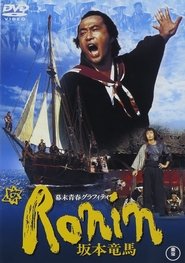detail profile takaaki enoki
Peran Yang Di Mainkan Takaaki Enoki
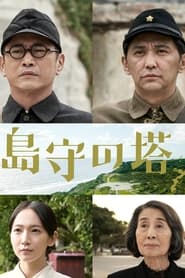 Together with Shimada Akira Hagiwara Masato...
Together with Shimada Akira Hagiwara Masato...Shimamori Tower 2022
Together with Shimada Akira (Hagiwara Masato), the last appointed governor of Okinawa during the war, Arai Taizo (Murakami Jun), the chief of police of Okinawa Prefecture, goes beyond his duties and strives to protect the lives of the citizens of the prefecture. As the ravages of war intensify, the two, who each carried a heavy cross during the Battle of Okinawa, desperately devote themselves to saving the lives of the Okinawan people, with the belief that "life is precious." A human drama, set in Okinawa at the end of World War II, depicting the preciousness of human life. Directed by Igarashi Sho of One Step on a Mine, It's All Over.
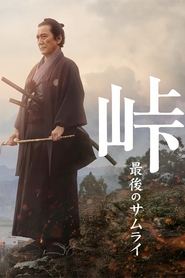 In the turbulent last days of...
In the turbulent last days of...The Pass: Last Days of the Samurai 2022
In the turbulent last days of the Edo period, Kawai Tsugunosuke, a Japanese samurai serving the Makino clan of Nagaoka, dreamt of independence from the restraints of vassalship. Despite his progressive views and his desire for his estate to remain neutral during the Boshin Civil War, he was bound by loyalty and duty to the clan and was compelled to choose sides.
 Izumi Hoshi is senior in high...
Izumi Hoshi is senior in high...Sailor Suit and Machine Gun: Graduation 2016
Izumi Hoshi is senior in high school, but she led a small yakuza group in her past. After killing her uncle's murderer with a machine gun, her yakuza group disbanded. Izumi now lives an ordinary life as a high school student and works as a manager at a cafe. A dangerous situation soon awaits for Izumi.
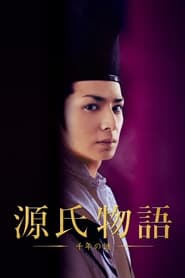 Genji Monogatari focuses on the love...
Genji Monogatari focuses on the love...The Tale of Genji: A Thousand Year Enigma 2011
"Genji Monogatari" focuses on the love and hate relationships surrounding Genji Hakaru. Lady Fujitsubo is Genji's first love. Ryokuzono Miyasutokoro is obsessed with Genji and eventually becomes a spirit. Yu Kao, who is from the lower class, give comfort to Genji's emotional wounds. Writer Murasaki Shikibu is jealous of Genji and is eventually ordered by Seime Abe to write a work ...
 Japan 250 years ago Soetsu is a...
Japan 250 years ago Soetsu is a...Kaidan 2007
Japan, 250 years ago. Soetsu is a moneylender who is killed by the cruel samurai Shinzaemon. His body is dumped in the Kasenega-Fuchi river. According to legend, all who drown in the river will never surface again. 20 Years later, Shinkichi, the handsome son of Shinzaemon, coincidentally meets Toyoshiga, the daughter of Soetsu. They fall in love. It is a doomed love, as the spirit of Soetsu is far from dead
 Based on the first novel Spring...
Based on the first novel Spring...Spring Snow 2005
Based on the first novel, Spring Snow, of Mishima Yukio's Sea of Fertility tetralogy, it follows the troubled and illicit affair between two youngsters amongst the aristocracy and rich of early twentieth century Japan.
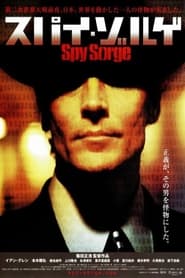 A foreign spy using the Sorge...
A foreign spy using the Sorge...Spy Sorge 2003
A foreign spy using the Sorge alias is assigned to Tokyo the capital of Japan just prior to the outbreak of World War II and in the midst of the Japanese imperial ambitions in Eastern Asia. The spy becomes acquainted with a sympathetic communist who like he is attached to the ideals of freedom and rule of the masses. Sorge is able to feed the Soviet Union useful information regarding the Axis allies and their movements in Asia and beyond.
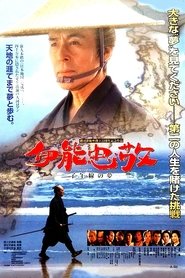 Biographical story based on life of...
Biographical story based on life of...Ino Tadataka: Meridian dreams 2001
Biographical story, based on life of Ino Tadataka, a Japanese measurer and cartographer. Ino Tadataka travelled the length and breadth of Japan on foot for 17 years from the age of 55 to perform his surveys. The accuracy of his maps also owed much to the fact that he was the first surveyor in Japan to combine measurements on the ground with observations of the heavens. Ino started the work as a private individual but earned the confidence of the Shogunate and it eventually turned into a national project. His maps were later used for many years as the foundation for maps made by modern survey techniques.
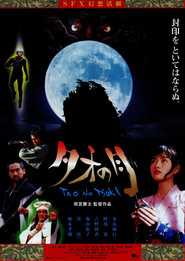 A retired warrior comes to see...
A retired warrior comes to see...Moon Over Tao: Makaraga 1997
A retired warrior comes to see his former lord and learns that someone is making indestructible swords from some unknown metal. He is sent together with a swordsman to investigate the source. Along the way they meet a young girl working as a beekeeper. She is later witness to the appearance of three strange females from another dimension. They are searching for a lost weapon that has landed on earth and as one of them lay dying she enlists the girl to help them control the strange beast/weapon. Meanwhile the warrior and the swordsman learn that an old nemesis has created the swords from the shell that surrounded the alien weapon. Soon the alien beast/weapon is awakened and battle for control ensues.
 In the last days of the...
In the last days of the...A Naive History of the Bakumatsu Era 1991
In the last days of the Tokugawa shogunate, there was a cute warrior, Souji Okita, who belonged to the armed police of the shogunate in Kyoto. Very few knew that Souji was not a boy, but a woman. Souji loved the vice-leader of the armed police, Toshizou Hijikata. Souji suffered from pulmonary tuberculosis and coughed up blood during a battle. Toshizou helped her but said that he did not care for the girl with a smell of blood. Souji had a real talent for swordsmanship and no one but Ryouma Sakamoto could compete with her. Ryouma was a liberal intellectual and tried to carry out a revolution without blood. However, the bloody Meiji Restoration broke out and Souji killed Ryouma who lost his dream. Because a friendship had sprung up between Toshizou and Ryouma, Toshizou got angry and slashed at Souji with a sword. Unwillingly, she unsheathed her sword and thought that she might get love if she was killed by the man she loved.
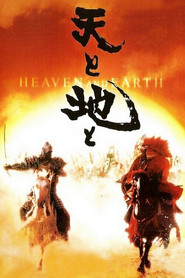 Warlords Kagetora and Takeda each wish...
Warlords Kagetora and Takeda each wish...Heaven and Earth 1990
Warlords Kagetora and Takeda each wish to prevent the other from gaining hegemony in feudal Japan. The two samurai leaders pursue one another across the countryside, engaging in massive battles of cavalry and infantry. Younger and less brutal, Kagetora must find the strength to be as brutal as his opponent, but at what cost?
 Iori taken from an orphanage by...
Iori taken from an orphanage by...Lost Chapter of Snow: Passion 1985
Iori, taken from an orphanage by a family for domestic work, runs away and is adopted and raised by two young men. Ten years later, she crosses paths with her former step-sister, who is soon poisoned to death, Iori being the prime suspect.

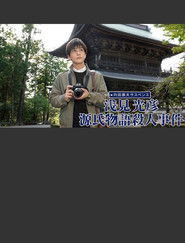
 When Mio was young she lost...
When Mio was young she lost...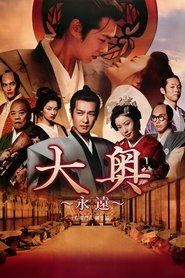 In the inner chambers of the...
In the inner chambers of the...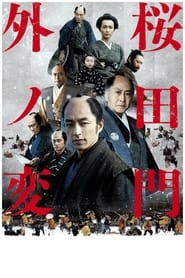 Mito Domain Samurai Seki Tetsunosuke must...
Mito Domain Samurai Seki Tetsunosuke must...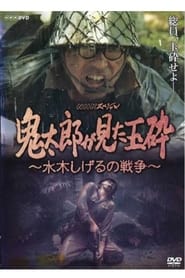
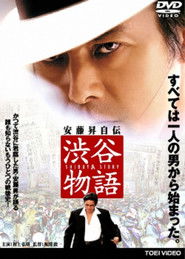 Biopic of yakuza Noboru Ando based...
Biopic of yakuza Noboru Ando based...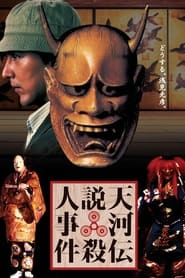 The patriarch of a bickering family...
The patriarch of a bickering family...